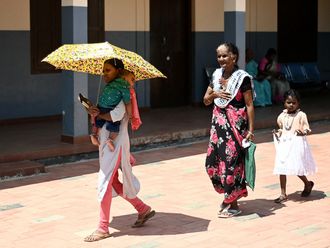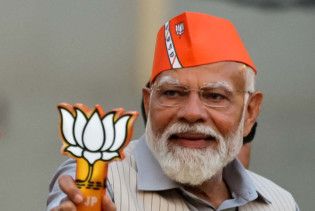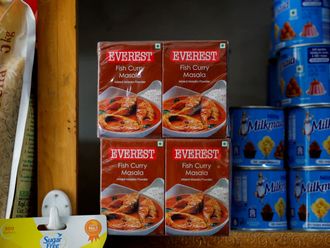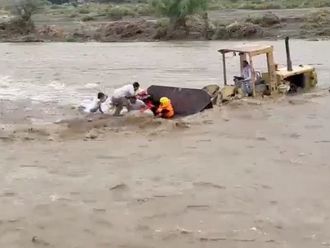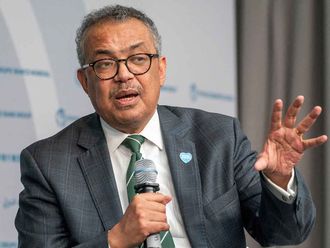![modiw]-1713083164777](https://imagevars.gulfnews.com/2024/04/14/modiw--1713083164777_18edbb6a894_medium.jpg)
NEW DELHI: Indian Prime Minister Narendra Modi’s Bharatiya Janata Party (BJP) promised on Sunday to create jobs, boost infrastructure and expand welfare programmes if it wins a third term, seeking to address key voter concerns ahead of next week’s elections.
The general election, which begins on April 19, will be held in seven stages until June 1. Votes are due to be counted on June 4 and results expected the same day.
Modi, 73, is widely tipped to win a record-equalling third term on the back of his 10-year record, which includes strong economic growth, infrastructure projects, welfare handouts and aggressive Hindu nationalism.
Surveys, however, suggest unemployment, inflation and rural distress remain issues of concern in the world’s most populous country despite its strong economy, and addressing these will be Modi’s biggest challenge.
Also read
- The anchoring effect and other BJP tricks this election
- India braces for searing heat ahead of world's biggest election
- 'Lacklustre management by Sonia and her son Rahul': India’s Gandhi dynasty, trailing Modi, battles for political survival
- India’s Prime Minister Modi woos south in bid for pan-India ride to power
“Our focus is on dignity of life ... on quality of life, our focus is also on creating jobs through investment,” Modi said after releasing the manifesto, titled ‘Modi’s Guarantee’, at the party headquarters in the capital.
Modi said the manifesto is focused on creating jobs in sectors such as infrastructure, aviation, railways, electric vehicles, green energy, semiconductors and pharmaceuticals, among others, in a bid to address discontent at unemployment levels that are rising despite strong economic growth.
“India’s youth will not have even imagined the number of opportunities that will come their way,” he told cheering BJP members, including top federal ministers who sat in the audience wearing stoles featuring the BJP’s lotus symbol.
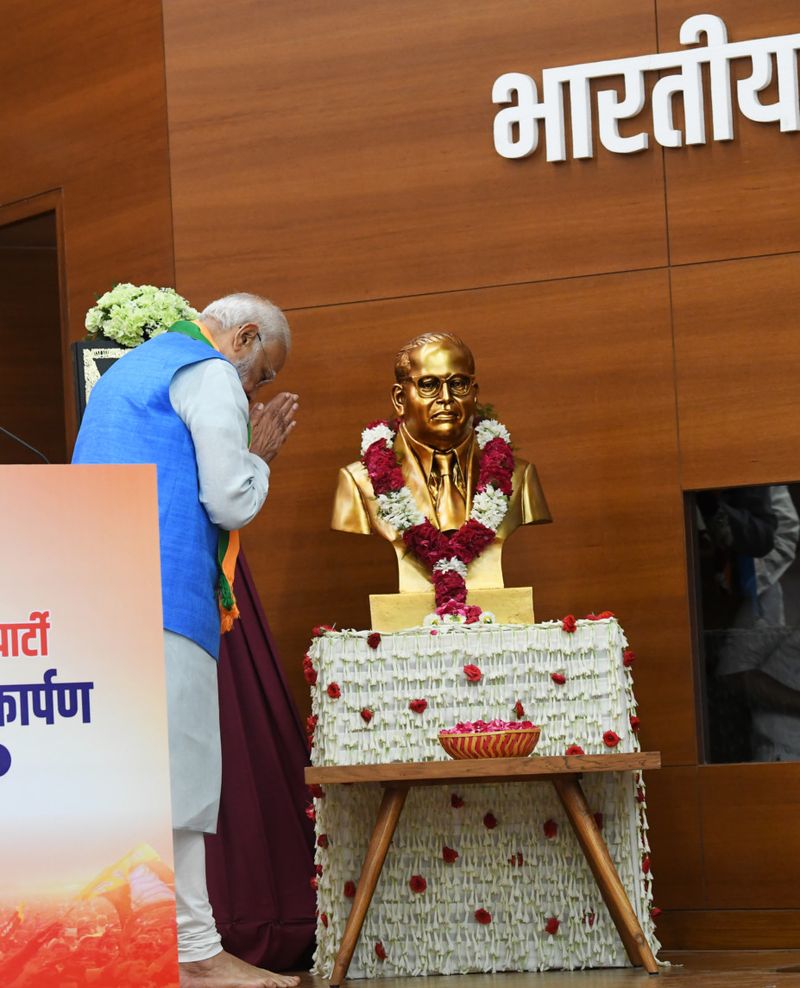
FOCUS ON WELFARE
Modi also vowed to expand welfare programmes, including bringing all Indians above the age of 70 under an existing free health insurance programme and pushing piped cooking gas connections to all houses to follow up on a subsidised cooking gas cylinder programme launched in 2016.
Other promises include raising the cap on loans for non-farming small and micro borrowers, offering free housing for another 30 million poor and keeping up a free grains programme for 800 million Indians until 2029.
The manifesto said the BJP government would continue to focus on a path of low inflation and fiscal prudence to achieve high economic growth.
“The ambition of the 1.4 billion people of the country is Modi’s mission,” Modi said. “I am placing this manifesto before the people to seek their blessings. Please bless us ... to increase our strength ... implement this manifesto and ensure a developed India.” Unemployment was the primary concern of 27% of the 10,000 voters surveyed by Lokniti-CSDS across 19 of India’s 28 states, with rising prices coming second at 23%, the Hindu newspaper reported last week.
The unemployment rate rose to 5.4% in 2022/23, from 4.9% in 2013/14 just before Modi swept to power, and nearly 16% of urban youth in the 15-29 years age group remained unemployed in 2022/23 due to poor skills and a lack of quality jobs, official data shows.
'AS GOOD AS 24-CARAT GOLD'
Modi has dominated Indian politics since he helped the BJP win the 2014 election in a landslide. He remains hugely popular and has been the party’s star campaigner for the past decade.
“India needs a stable government when the world is going through turmoil and conflict,” Modi said at the launch. “Reform, perform is our identity.”
Several BJP leaders speaking at the launch touted Modi’s pledges, with Defense Minister Rajnath Singh describing it “as good as 24-carat gold.”
The party said it will turn India into a global manufacturing hub, and work on making India’s cities more livable. Modi said he’s already instructed officials to begin work on policies to be implemented when he returns to office.
“After June 4, we will start working toward our manifesto promises,” he said. “We have already started working toward key decisions to be taken in the first 100 days.”
India is posting growth rates of more than 7%, making it the fastest-expanding major economy in the world. Foreign investors have been flocking to the stock market, and businesses are increasingly turning to India as they look to diversify their operations outside of China.
Even so, the economy isn’t growing fast enough to absorb the millions of young people who join the workforce every year. A skills-jobs mismatch and poor schooling means almost a third of graduates are unemployed.
Madhavi Arora, an economist at EmkayGlobal Financial Services Ltd., said Modi’s government has a “decent track record of achieving past manifestos,” adding that the latest programme aims to improve social and economic inclusivity.
“The focus on physical and social infrastructure continues, both of which will improve India’s growth and development potential,” she said.
The BJP won the last two elections with big majorities and has promised to expand its mandate even further. It faces a 20-plus party opposition alliance that appears to be on the backfoot, lacking unity and cash-strapped.
The opposition has also accused Modi’s government of using federal investigative agencies to target them. Two prominent leaders — Delhi’s Chief Minister Arvind Kejriwal and Hemant Soren, chief minister of the central state of Jharkhand — were recently arrested and jailed on corruption charges, which they say were politically motivated.
The BJP has denied the opposition’s allegations and have said those facing investigation should fight the matter in the courts.
In an apparent reference to the cases, Modi said on Sunday he’ll continue combating corruption, repeating a vow made in an interview to a local newspaper last week.
The manifesto was released on the birth anniversary of BR Ambedkar, the architect of India’s constitution and a towering figure among India’s Dalit, or lower caste, community. Party leaders paid tribute to Ambedkar at the press conference.
The BJP once again promised to enforce a Uniform Civil Code, a proposed federal measure which would combine current religion-based laws that govern marriage, inheritance and divorce.
The party has, on the campaign trail, trumpeted the fulfillment of other key past pledges including the revoking of autonomy in Jammu and Kashmir — the country’s only Muslim-majority region — and the building of a temple where a mosque once stood.



